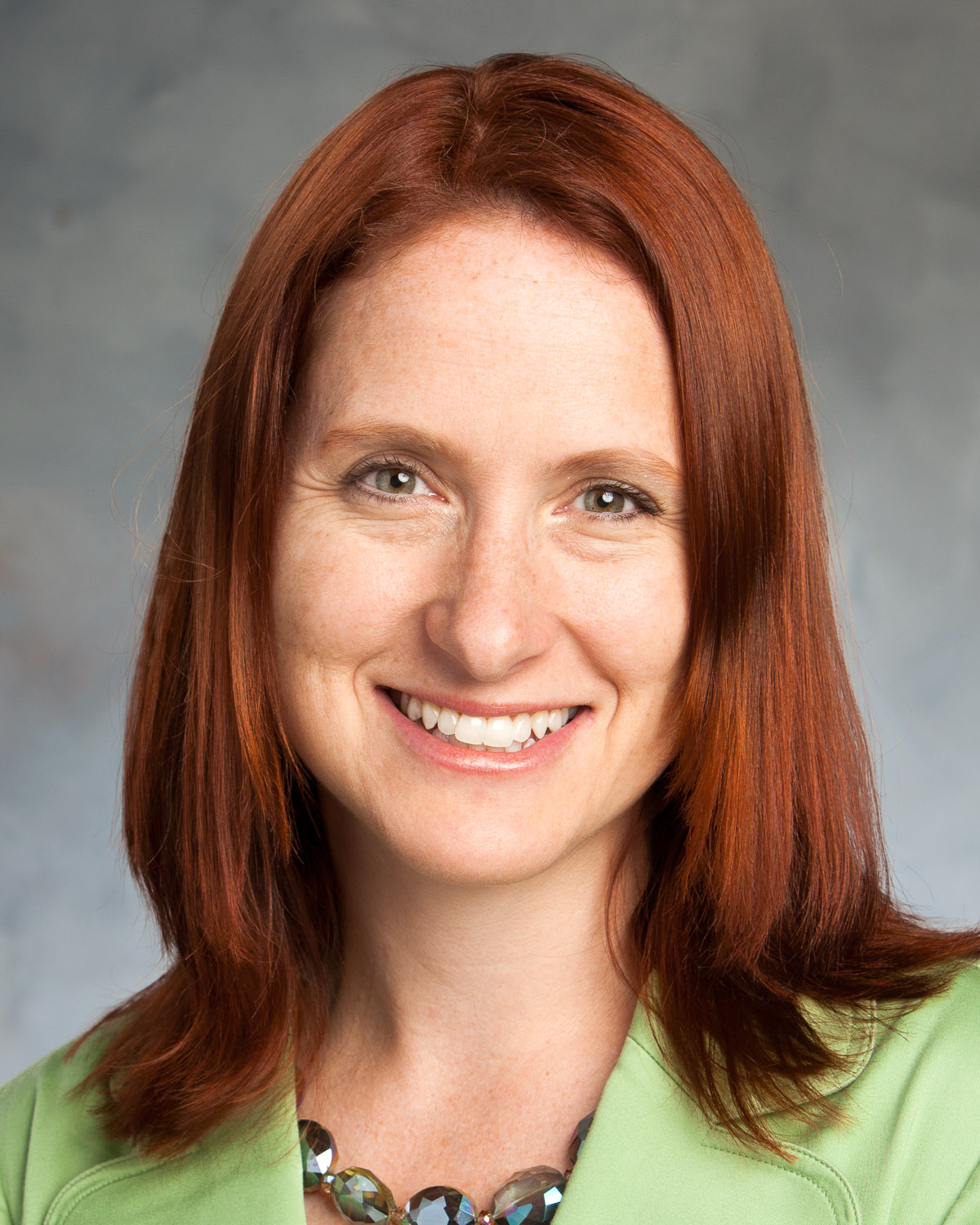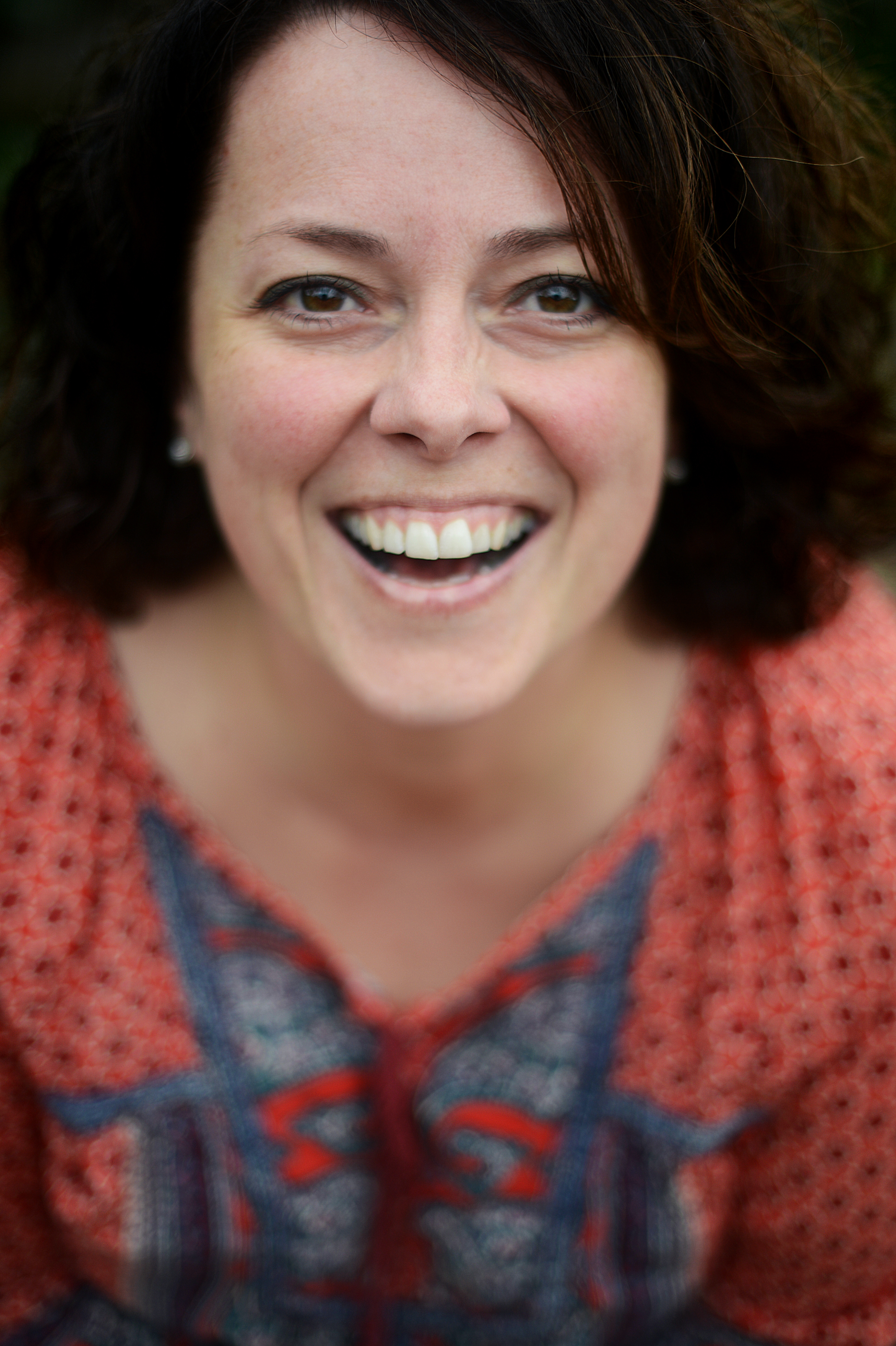Last Sunday after Pentecost (Christ the King)
Adult and Small Child
Amanda Wischkaemper

Amanda Wischkaemper is devoted to telling & hearing stories, building relationships, and finding reasons to laugh. She is a professional actor, dialect coach, theatre educator, and dog-person. In her 13th year of Episcopal Children’s Formation, she currently serves as Director of Children’s Ministry at St. David’s Episcopal Church in Austin, Texas, alongside her Music Director husband (Mark), and turbo-toddler (Abby).
Read: Luke 23:33-43
Reflect: The Feast of Christ the King is the last Sunday of our church year. Next Sunday, we begin again. Advent is a time for praying and reflecting. It’s also a time for waiting. We are waiting for a King. Not the kind of king we hear about in stories—with riches and power and a castle—we are waiting for the King of our hearts. We are waiting for Jesus.
In this text, we hear of Jesus’s death and sacrifice for us at Golgotha. Even though next week begins the joyful anticipation of our King’s birth, today we remember his death. We skip to the
end of the story before we begin again. Even as Jesus was dying on the Cross, he loved and forgave us. The Roman soldiers taunted him, “If you are the King of the Jews, save yourself!” Jesus could have saved himself; he saved us instead. A Holy Advent lies before us, when we await Christ, our newborn King.
Respond: The trappings of Christmas already surround us! Indeed, stores were adorned with sparkly lights and winter wonderlands well before Halloween ... and it is not yet Advent! For many, it isn’t realistic to keep secular Christmas at bay until December 24. As you deck the halls this year, could you shift your focus to the waiting? In the Way of Love, we are called to rest. As we prepare to prepare, find some stillness. Sit quietly. Take a nap. Walk outside. Breathe deeply; enjoy some quiet before the joyful noise begins. Waiting can be active! Open Advent calendars and light wreath candles together. Display a nativity set piece-by-piece, with the Holy Family last to arrive. Put lights on your tree, but delay hanging ornaments; decorate the tree, but postpone turning on the lights!
-Amanda Wischkaemper
Adult and Elementary Lisa is the Coordinator for Special Needs Worship and Family Formation at St. Andrew’s Episcopal Church in Houston, Texas. Lisa leads Rhythms of Grace Houston, a weekly worship service for special needs families, and oversees ministries for children and parents at St. Andrew’s. She has worked in parish ministry since 2002, served two terms as vice president of Forma, and is a member of the diocesan formation advisory committee in the Diocese of Texas. Lisa and her husband Mike have four grown children.Lisa Puccio

Read: Colossians 1:11-20
Reflect: As we end the church year and prepare for the season of Advent, we pause to remember that Christ is our King. He is above all else, one with the invisible God, and the most powerful force in our lives. Paul writes to the Colossians and says, “...be made strong with all the strength that comes from God’s glorious power…” (Colossians 1:11, NRSV) Paul also reminds us to give thanks to Jesus for all that we are and all that he has done for us. That strength often comes in mysterious ways – when we are confronted by a bully, or someone in need, or someone we thought was a loyal friend and then betrays us. These are times when strength eventually bubbles up from deep down inside and we find that the way to react is at our fingertips. This is when we know that we are a reflection of Christ, and a reflection of the invisible God. This is our faith at work.
It may be hard to think about Jesus dying on the cross for us, but we need to remember that is why Jesus came. He came as a loving sacrifice – to be completely human and know our pain. What better image is there for a king of all the Earth than a God who loves us that much?
Respond: This passage is full of beautiful imagery. Play a word association game: Write the following words from the passage on slips of paper and, as a family, draw a word and say what first comes to mind when you hear that word: strong, light, invisible, power, throne, saints, pleased, darkness, kingdom, peace. There are no right and wrong answers. Our reactions are a response to what we know and are worthy of sharing with each other.
-Lisa Puccio
How will you share the good news of Jesus the King this week?
Adult and Youth Katherine is the Coordinator for Youth and Young Adult Ministries and the the rector of St. Thomas Episcopal Church in the Diocese of Kentucky. She live in Louisville with her husband and whichever of her four young adult children happen to be home at the time. Katherine's greatest joy is being a mama: first to her own four and then to all the children, youth, and young adults who call her Mama Doyle. She often finds God in the ordinary messiness of everyday life and writes about it on her blog http://thesixdoyles.blogspot.com/.Katherine Doyle

Read: Luke 23:33-43
Reflect: What kind of “king” is crucified without a fight? What kind of “king” forgives those who kill him? What kind of “king” forgives those who betray him including one of his closest friends? What kind of “king” while dying reaches out to others, forgives them and welcomes them into paradise? Probably no king or any kind of world leader today. I might go so far as to say any kind of leader.
Yet that is the kind of leader, the kind of people God is calling us to be. If we want to follow Jesus, we must strive to live as Jesus. And Jesus lives from the heart of the Gospel: Love the Lord your God with all your heart, mind, and soul and love your neighbor as yourself. Love.
Respond: Living as the Gospel, as Jesus asks us to live every day, is HARD! Loving, forgiving, showing mercy, accepting, including--wait does God mean all the time? Yes, but God also asks us to take care of who and what is in front of us. What is one thing you can do this week (or be brave and say every day) that boldly proclaims you are living this way?
-Katherine Doyle
Adult and Adults KariAnn Lessner has led youth and children’s ministries in The Episcopal Church and the Diocese of Texas for over twenty years. Currently the Minister for Children and Families at Christ Church Cathedral in Houston, she loves serving as a summer camp session director at Camp Allen and is a frequent speaker to women’s groups throughout Texas. In addition, she produces the podcast “You Brew You,” where she sits down with folks to share what God is brewing in their lives in the hopes that each person is infused with grace and courage by the other’s faith. She enjoys spending time with her family, hammocking, reading, and sipping sun tea in the great outdoors.KariAnn Lessner

Read: Luke 23:33-43
Reflect: The old hymn “My Hope Is Built” by Edward Mote, written in 1834, contains these words in the second verse: “When darkness veils His lovely face / I rest in His unchanging grace; / In every high and stormy gale / My anchor holds within the veil.” I can remember singing those words as a kid and thinking, “Y’all want me to hook my anchor to a veil? That seems pretty flimsy. But okay. You are singing this like it’s truth, so I guess I will too.”
It wasn’t until that hymn came to mind recently that I realized the words don’t say, “My anchor holds onto the veil,” but rather “within the veil.” Put a pin in that! We’ll come back to it. In Biblical times, folks didn’t go certain places without an invitation. You didn’t just show up at the palace and demand an audience with the king. In the temple, certain areas were off limits to nearly everyone. One area in particular, the Holy of Holies, the space where God was believed to live, was entered only once a year on the Day of Atonement and only then by a priest. The Holy of Holies was cordoned off by a curtain or veil, a physical reminder that people needed someone, namely a priest, to be the go-between, to enter that place on their behalf.
Jesus, who hung on a cross with the words, “THIS IS THE KING OF THE JEWS” written over his head, and who assured his neighbor on the cross that they would see each other in paradise, became that go-between. In Luke 23:45, as Jesus died, the veil in the temple was torn in two. The barrier was gone. Jesus made a way for us to gain full access to God, with no go-betweens necessary. As the hymn says, my anchor (Jesus) holds within the veil (the dwelling place of God.)
Respond: Spend some time today reading the lyrics or listening to hymn “My Hope is Built” on iTunes or YouTube. Write in your journal about whatever bubbles up in you after time spent with an old hymn (hopefully with new/fresh eyes and ears!). Think about what it means to have no barrier between you and God.
-KariAnn Lessner
Download a printable copy of this week's devotions HERE.
Tags: Lectionary Based Readings & Reflections / Latest Posts

